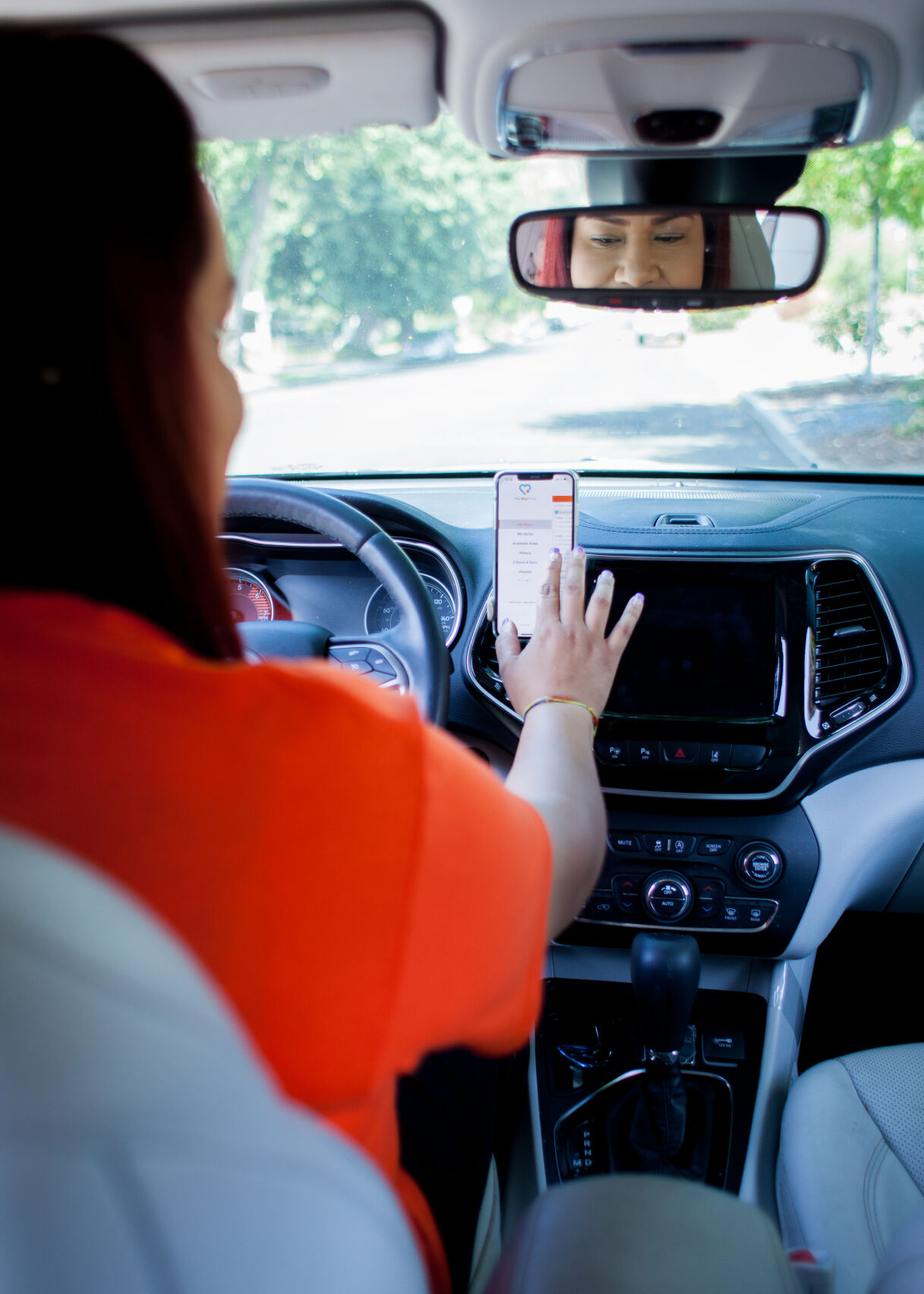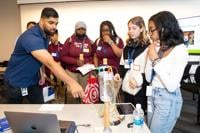
CareDrivers go through a rigorous 15-point certification process. Photo Courtesy of HopSkipDrive.
Maria Gomez applied for a role as CareDriver at HopSkipDrive five years ago. She said that her main motivator was that she loved working with kids and saw an opportunity to be part of a larger network of people making a positive impact. “If I make a difference and another person makes a difference, then each of us can be part of a big chain of changing things,” she said.
Originally from Mazatlan, Mexico, Gomez was raised in a family of seven siblings. She grew up with a special needs sister, which instilled in her a sense of empathy and understanding for other high-needs children. She is now 42 years old with two teenagers of her own and says she feels connected to HopSkipDrive’s mission.
HopSkipDrive is a technology company headquartered in Los Angeles that solves complex transportation challenges by partnering with school districts, government agencies, and nonprofits. It was launched in 2014 and has since expanded to address transportation gaps for high-needs children across the country, particularly by providing rides for foster youth and children with disabilities.

CareDrivers are now available throughout 14 states and Washington, DC. Photo courtesy of HopSkipDrive.
Joanna McFarland, HopSkipDrive CEO and co-founder, said to CALÓ News that CareDrivers undergo a rigorous 15-point certification process before being accepted to drive.
“We take safety extremely seriously and one of our core values is that safety is everything,” she said about the process. Due to the sensitive nature of working with high-risk children, HopSkipDrive requires criminal record/background and driving record checks, checks through the Trustline registry, fingerprinting, child abuse and neglect screening (CANS), and meeting vehicle requirements (including a valid license, registration, insurance, and car inspection).
Thanks to the thoroughness of the procedures, HopSkipDrive ends up with dedicated CareDrivers, who are ready to go above and beyond for their passengers. Gomez approaches each ride as an opportunity to provide the best possible experience. She said that sometimes children are unable to communicate verbally and she tries to go the extra mile to ensure that her passengers feel safe, at ease and happy.
On one occasion, Gomez described picking up a seven-year-old boy who was non-verbal. As soon as the child got in the car, Gomez noticed that he seemed uneasy and anxious. She quickly recalled a helpful tip from her previous driving experiences and turned on some soothing music. “I put on 'Baby Shark' and the kid fell asleep,” she said, describing how the music immediately calmed the child down.
Through partnerships with schools, districts, counties and other organizations HopSkipDrive has been able to provide transportation services for vulnerable student populations. This is especially critical in underserved communities where Latino students are most affected by a lack of access to timely public transportation.
According to the Public Policy Institute of California, chronic absenteeism rates for students identifying their race/ethnicity as African-American, and Hispanic or Latino, on average are more than 30 percent worse.
About a quarter (24.3%) of California K-8 students miss school regularly, according to the state Department of Education’s annual data. These students are considered chronically absent, which means they haven’t been in school for at least 10 percent of the school year. This trend highlights the need for effective measures to support and engage Latino students and improve their attendance rates.
McFarland also says that an overwhelming majority of school leaders believe there is a link between transportation and attendance. “You can’t stay in school if you can’t get to school,” she said to CALÓ NEWS, “and many studies link a lack of access to stable, safe transportation to chronic absenteeism.”
By catering to several underserved populations, HopSkipDrive has become a valuable resource for families, schools and many communities of color. Although the company mainly operates out of northern and southern California, it has extended services to other cities across the United States like Chicago, Seattle, Indianapolis and Philadelphia among others.
McFarland says that business is strong and that she expects to see continued organizational growth over the next five years and beyond. “We’ll continue to expand. Last year we moved into five new markets, and are now in 14 states and Washington, DC.”

HopSkipDrive arranges care-centered transportation in Los Angeles and across the country. Photo courtesy of HopSkipDrive.
Nevertheless, the CEO recognizes that expansion means there is an unmet need for clients, partners and riders, which they aim to close the gap on.
“The reality is that education problems require nimble solutions like HopSkipDrive,” said McFarland, “they aren’t going away, and in fact, will likely continue to challenge us all.”














(0) comments
Welcome to the discussion.
Log In
Keep it Clean. Please avoid obscene, vulgar, lewd, racist or sexually-oriented language.
PLEASE TURN OFF YOUR CAPS LOCK.
Don't Threaten. Threats of harming another person will not be tolerated.
Be Truthful. Don't knowingly lie about anyone or anything.
Be Nice. No racism, sexism or any sort of -ism that is degrading to another person.
Be Proactive. Use the 'Report' link on each comment to let us know of abusive posts.
Share with Us. We'd love to hear eyewitness accounts, the history behind an article.